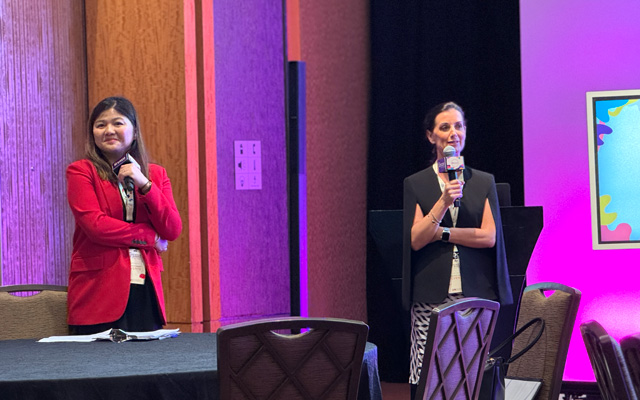
Maintaining visibility and cultivating several relationships with sponsors within an organisation and wider industry is necessary for women in the business events industry, as this can lead to opportunities such as board positions or significant career advancement.
This, along with tips on choosing an appropriate sponsor, was shared at the Advancing Women in the Business Events Industry session, held on day two of PCMA’s The Business of Events conference at Marina Bay Sands last week.

On the difference between a sponsor and mentor, Deborah Caldwell, senior vice president, Asia Pacific head of events, Bank of America, shared: “A sponsor is someone that usually sits on a more senior level or has a lot of influence. A sponsor will advocate for you in some shape or form, put their reputation on the line for your career growth, and advocate for you.
“Meanwhile, a mentor is more of a private relationship. They do not have to be someone senior or has influence, but will share knowledge, offer feedback, and help with development. They (usually will) possess skills and experience relevant to the mentee’s area of interest.”
This is because women usually struggle with articulating their achievements and advocating for themselves, making the role of sponsors even more crucial in career progression, speakers observed.
Culturally, some nationalities, especially in Asia Pacific, can also be shy in articulating what exactly they want during their career planning.
“It shouldn’t be uncomfortable to think about the job that you want. There are certain key people you have to tell, so that they can help you. Even if you’re introverted, or from a culture where it feels uncomfortable, you would have to at some point, tell someone exactly what you want,” shared Caldwell.
In any relationship, it takes two hands to clap, and it is no different when looking for a sponsor.
“Sponsor relationship is reciprocal, as your sponsor will be taking on a lot of responsibility in wanting to advocate for you. Hence, you also have to think about your role, and what you can contribute as well,” added Genevieve Lim, executive director of MICE management, Marina Bay Sands.
As to identifying potential sponsors, Caldwell advised: “When thinking about potential sponsors, think about what you are trying to achieve (in this career path). It does not need to be directly related to your current job, it could be something that you want to become the CEO of (in the future), or something that will add to your particular journey or development.”
Caldwell added that “lateral movement”, defined as moving to another destination to work under a different boss within the same organisation, can also be considered a form career advancement.
As such, it is important to understand where one wants to go, so that they can be strategic about it, and put themselves in the relevant situation.
Caldwell stressed: “It’s about visibility. You need other people sitting in the broader organisation to know who you are, other than your manager. So turn up at meetings, ask a question, say a statement, or join a committee. Just be vocal, because that’s all you have to do to be in the mix.”




















